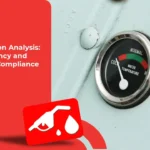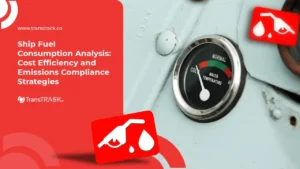Tips for Monitoring Fleet Vehicle Maintenance Time
Posted on January 4, 2024 by Nur Wachda Mihmidati

Vehicle maintenance is very important for motor vehicle owners. Plus, if the vehicle has been used for a long period of time. For that, we need to do vehicle maintenance. Then, what is vehicle maintenance? Check out the full explanation through the following article TransTRACK!
Vehicle Maintenance, what is it?
When it comes to keeping things in working order, it’s a good idea to keep them in good and functional condition. Vehicle maintenance refers to the practice where cars are serviced regularly to prevent major breakdowns or the need for major repairs. Examples of the types of car services that may be sought for maintenance purposes include oil changes, spark plug changes, and tire rotations.
It is believed that a car will last longer and operate better if one can adhere to the vehicle’s Maintenance schedule. This is generally a document or booklet that comes with the car that specifies when certain services should be sought. In some cases, if a person does not adhere to this schedule, he risks voiding his warranty.
Some people, for whatever reason, may not have a vehicle maintenance schedule. An auto mechanic can generally determine a maintenance schedule that will help car owners to keep their cars in good working order. General maintenance schedules are also usually available on the Internet.
There are various types of vehicle maintenance. Some of them, such as changing the oil or replacing the timing belt, are necessary to help prevent major breakdowns. Other services, such as rotating tires and replacing brake pads, are necessary to reduce the amount of money spent on replacement parts. For example, tires that are not rotated may not last long.
Safety is a good reason for vehicle maintenance. Replacing windshield wiper blades is an example of something that should be done from time to time rather than when there is an immediate need. If a person waits until he is in the middle of a storm and then discovers his wiper blades need to be replaced, he will be putting himself at risk. The same goes for tires that are not replaced according to the manufacturer’s recommendations. The result could be a blowout that causes an accident.
Another reason why people should take vehicle maintenance seriously is that it adds value to the car. In many cases, when someone tries to sell a car or trade it in for a new one, maintenance records will be requested. If it can be shown that the vehicle has been well maintained, the potential buyer will most likely pay more.
Purpose of Vehicle Engine Maintenance
Your precious car is reason enough to keep it on top of its all-important maintenance schedule. We spend a lot of time in our cars, whether it’s running errands or going to work. Here are the purposes of vehicle engine maintenance, namely:
Increase Safety
By regularly performing car maintenance services, it will increase our safety while on the road. It will prevent parts from breaking down and bigger problems from arising. But if we constantly maintain the car and check for systems that may have problems, we will eliminate the risk of dealing with a malfunctioning car.
Keeping the Car Performing at Its Best
Along with improved safety, our cars will also perform better than if we slacked off on maintenance services. Imagine getting better tire traction, more stable steering, and more reliable engine starts. All of that is possible if we just schedule those regular maintenance appointments. Don’t have the time? Don’t worry about it! In this digital age, you can schedule your car maintenance by subscribing on your smartphone, making it the most convenient and time-saving option out there. It only takes a few minutes to book your appointment, then leave the rest to the mechanics. They’ll get your car ready and do their best.
Save Money
If we maintain our cars regularly, we will prevent bigger and more expensive problems from arising. Would we rather pay a little now to keep our car healthy, or a lot more because we decided to skip a key service? The smartest way to save money is to book an appointment with one of the mechanics as soon as possible.
Lower Fuel Costs
When we take good care of the car, it won’t waste fuel. But if we skip one of the major services, our gas mileage may drop quite a lot. This means we’ll have to fill up the gas tank more often, wasting time and money. So keep up with your car maintenance service by scheduling appointments with the mechanics!
Save Our Time
By following the maintenance schedule, we will prevent bigger problems that can make our car unreliable. If we are really unlucky and have to deal with a major car repair issue, we may not be able to drive our car for days or even weeks. Not only does this make it extremely inconvenient for us to do anything, but it’s also a waste of time that we could be spending on something we really enjoy. In this day and age, time is a very important resource. People seem to be getting busier every day, cramming more and more into their busy schedules. But if we choose our car repair and maintenance service, we will be able to use our time wisely. You will not be asked to stay with your car during the service or leave our car in the garage. Because the mechanics will usually bring all their equipment to us, fix the car and leave it right where they are working on it.
Keeping the Value of the Car High
If we plan to sell our vehicle in the near future, or even later in the future, then we should keep up with our maintenance schedule. Not only will this service make the driving experience more enjoyable for us, but it will also keep the value of the car high. When we go to sell the car, we will get more money if we maintain it well.
Implementing a Fleet Vehicle Maintenance Checklist
Before implementing a checklist for fleet vehicle maintenance, it is important to create a list of goals and objectives as it will help Fleet Managers and drivers know their roles and responsibilities. Moreover, it also creates transparency, clarity and accountability among the stakeholders involved in the maintenance process.
For example, the Fleet Manager can draw up a maintenance checklist/program and then monitor it from start to finish. On the other hand, the driver can perform basic checks, which include checking tire pressure, fuel, engine temperature, etc.
Once the roles and responsibilities are defined, we can follow the 3-step checklist listed below:
Step 1: Collect and Store Information from Existing Fleet
Collecting and storing all important vehicle information in one location is key to success for any fleet owner. It helps drivers and Fleet Managers save valuable time and prevent miscommunication.
Predictive maintenance software built on flexible cloud architecture can seal the deal for any Fleet Manager. Cloud computing gives us the power to access, record, manage and retrieve data from anywhere. It also makes a paradigm shift from traditional business models to SaaS-based business models.
Step 2: Develop a Fleet Vehicle Maintenance Plan
Once we have all the important vehicle data in one central location, proceed with drawing up a detailed maintenance plan for our fleet. This will ensure maximum uptime for our vehicles and also save the Fleet Manager from missing any key elements. Here’s a checklist of Driver Vehicle Inspection Notes that drivers should follow every day:
- Exterior of the vehicle
- Wheels and tires
- Rest and grip
- Engine
- Fuel
- Windshield and glass
- Dashboard and interior
- Other FM specified parts
With fleet maintenance software, drivers can easily fill out maintenance forms. Fleet Managers then get real-time notifications for DVIRs and drivers receive alerts for service/maintenance.
What’s more, Fleet Managers can utilize a user-friendly and comprehensive dashboard that visually displays important vehicle data through AI data analytics. They can check if drivers are performing maintenance, respond to failures in real-time, check vehicle status, and efficacy.
Step 3: Create and Organize Routine Maintenance Cycles
This step entails managing and coordinating a predictive maintenance schedule that includes parameters such as vehicle type, frequency of use, operating conditions, mileage, operating hours, time since last inspection, etc.
All the Fleet Manager needs to do is set the basic parameters, and their specialized software automates repetitive maintenance tasks, streamlines workflows, and improves efficiency by leaps and bounds.
As per magazine published by Deloitte, in industry 4.0, predictive maintenance is the key to success. It increases equipment uptime by 10-20% while reducing maintenance costs by 5-10% and maintenance planning time by 20-50%.
That way, you have to be smart in choosing Fleet Management System and maintenance for better maintenance of your vehicle. TransTRACK also provides the best Fleet Management System that you can use to optimize your vehicle management for the better!
Recent Post
Complete Guide to Reducing Loss Cargo Risks in the Logistics Business
February 23, 2026Managing an Integrated Cold Chain to Minimize Risk and Loss
February 20, 2026Topic :
Recommended Articles

 Bahasa Indonesia
Bahasa Indonesia








